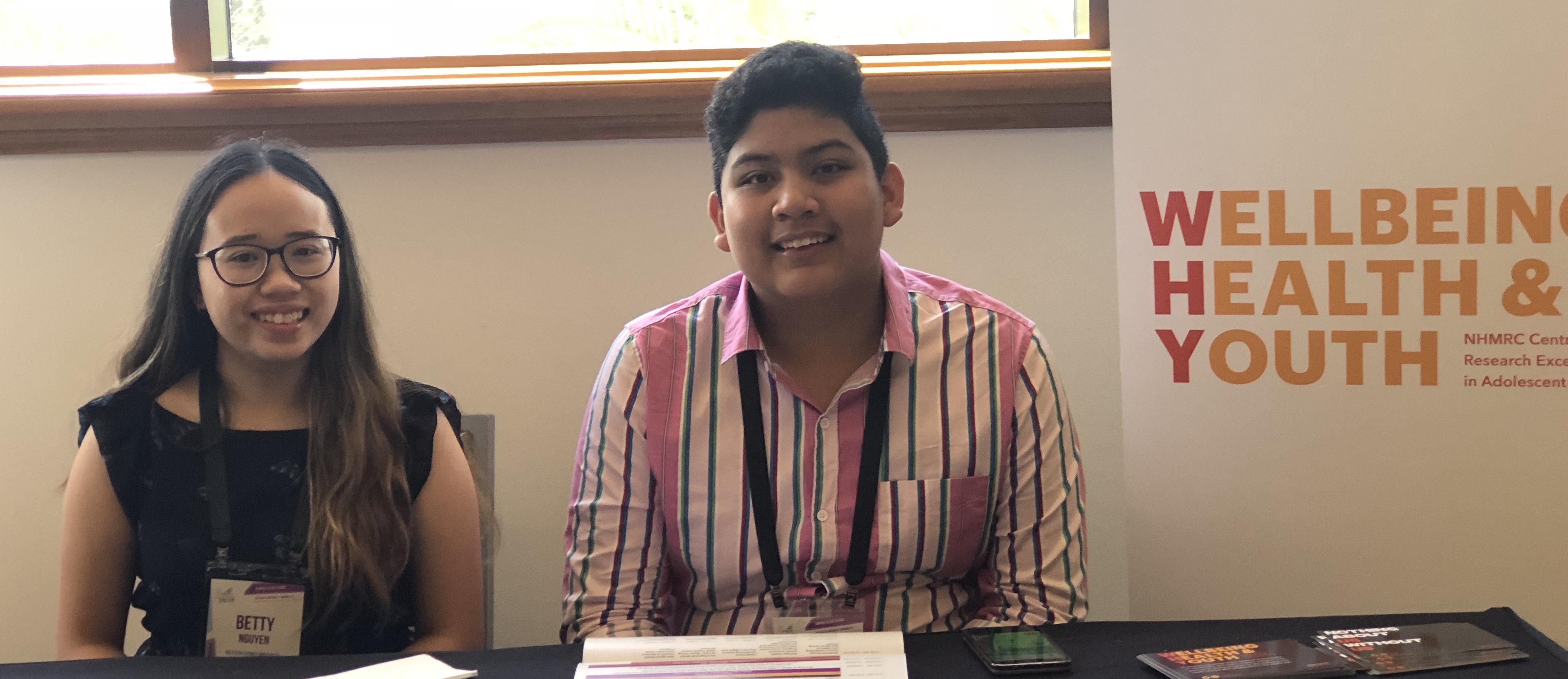Over the course of a year, and multiple workshops, consultations and roundtable events, Betty Nguyen and Gerard Lachlan Abadines have been working with Wellbeing Health & Youth (WH&Y) to explore better ways of engaging young people in the development of health research, policy and practice. The team, including researchers, professionals from the health, government and community sectors, and a number of young people, have now produced the WH&Y Engagement Framework. Here, Betty and Gerard share a few insights about making youth engagement work.

[#1] Don’t rush it: building trust takes time
Don’t expect to get youth engagement in a single session, or event. For it to work well, there has to be a mutual sense of trust between everyone involved. Adults must establish trust between young people and understand what they value and prioritise in life. In order to build and develop this, take some time out to understand young people’s existing support networks and acknowledge this during your practice. Health professionals and researchers need to trust in young people’s capacity to complete tasks and that their lived experiences shape their sense of self and perspective in the world. Adults (health services and professionals) should be mindful and clear about their assumptions of young people. Have transparent conversations about how trust can be built in order to create a strong relationship between all young people, health professionals and researchers.
[#2] Make feedback the beginning, not the end of the process
Including young people in the conversation is only the beginning of youth engagement. Truly meaningful, innovative and effective outcomes only occur when young people are also actively involved in the design, development, implementation and delivery of health services. Best-practice in youth engagement arises when young people are involved in the research process as well as the delivery and reception of research outcomes. Youth engagement is youth-centred and not youth-consulted.
[#3] Design activities that deliver knowledge, skills and power
Young people should be supported with the knowledge and skills they need to make their contributions with confidence. This is an opportunity to empower young people to discover a sense of self and expand their understanding of the world around them. Youth health, policy and practice should be known and understood not only by professionals, but by young people, too. Activities should help young people learn life skills, increase their self-confidence and create or expand their personal networks.
[#4] Diversity is key!
Young people are complex individuals. Their understanding and perception of the world is multifaceted. Researchers and professionals must recognise that one young person’s ideas and concerns are not representative of all young people. Researchers must include young people from diverse backgrounds in their practice in order to understand the issues that impact them and the language they use to frame those issue. Respecting the current needs and future potential of all young people, and recognising their different perspectives and experiences, reduces unfair differences in health outcomes.
[#5] Keep young people in the loop
Young people want to know where their contribution is going and how their involvement has been utilised. It’s important to set clear expectations for young people at the start of the project, and to provide resources that allow them to express their opinions along the way. A ‘feedback loop’ helps young people to be aware of outcomes and to expand their own knowledge. It also serves to highlight the benefit of young people’s engagement across health research, policy and practice and invites them to continue engaging in research in a variety of ways.
[#6] We’re all in this together
Young people, health professionals and researchers have a shared understanding and responsibility to follow through with these expected goals. Shared responsibility occurs when young people and adults have an understanding of the processes. With these responsibilities, adults need to support young people’s contributions to research, health research and policy. Recognising young people’s different experiences and perspectives throughout the design, implementation and evaluation processes allows health professionals to effectively respond to young people’s diverse needs. The co-design of projects, systems and services can foster equity and responsiveness by ensuring that research practice, policy and research relates to young people’s hopes and experiences, but also the interests of health professionals.
Authors
Betty Nguyen is a student at Western Sydney University studying a Bachelor of Laws / Bachelor of Arts. She is interested in researching young people, issues in social and public policy, youth engagement and young people’s relationship with the law. As a young person, Betty is passionate about young people’s relationships and experiences and how they can be communicated to adults in meaningful and insightful ways. She spoke on behalf of WH&Y at the 2019 International Symposium on Public Involvement in Health Service Research at the University of Sydney.
Gerard Lachlan Abadines is fourteen and in high school. He loves to draw and cook, but spends the majority of his free time volunteering with the headspace Youth Advisory Committee. He is interested in young people's health because it affects the majority of Australians and because we all have a unique point of view to share.









